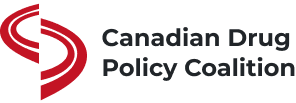
January 25, 2024
To:
Hon. Scott Moe Premier of Saskatchewan [email protected]
Hon. Everett Hindley Minister of Health [email protected]
Hon. Tim McLeod Minister of Mental Health and Addictions [email protected]
Re: Recent Saskatchewan Health Policy Changes
Premier Moe, Minister Hindley, Minister McLeod;
We are writing on behalf of the HIV Legal Network and the Canadian Drug Policy Coalition to express our grave concern at the Saskatchewan government’s recent health policy changes, announced January 18, 2024.
The changes, which include restricting access to vital harm reduction supplies and information encouraging safer substance use, will jeopardize efforts to combat the transmission of HIV and hepatitis C, shutter cost-effective and proven health interventions, and contradict decades of established scientific evidence, best practice in public health, and international guidance. Ultimately, they put people in Saskatchewan at risk.
Communities across Canada face intersecting challenges of poverty, homelessness, a dangerously unregulated drug supply, and health inequities. To meaningfully address these challenges and improve life for all people, governments must implement compassionate, evidence-based public policy that upholds principles of public health and human rights.
For nearly six years, the provision of sterile pipes and information on safer inhalation has been part of efforts to reduce the transmission of hepatitis C and HIV, promote safety for people using drugs in Saskatchewan, and connect people to health and social supports. This abrupt policy change not only undermines these efforts but also puts people at risk of harm, placing an undue burden on communities, Saskatchewan’s health system and those who work within it, and community organizations.
The shift to a “one-for-one” needle exchange is not only outdated but counterproductive, likely increasing rates of infection in Saskatchewan and exacerbating the challenges faced by people at risk of overdose. Given the province’s unfortunate distinction as a hot spot for HIV transmission in Canada, and the disproportionate impact this has on Indigenous communities in Saskatchewan, it is crucial to reconsider this policy.
The policy appears fiscally reckless, as the cost to manage new cases of HIV and hepatitis C is considerably high. Preventing new infections through sterile supplies and safer use information is a vastly more cost-effective approach. We urge the government to responsibly steward public funds by continuing to invest in health interventions proven to reduce transmission and alleviate the strain on health care systems.
The Saskatchewan government’s inability to cite any evidence in support of these policy changes raises serious questions about the decision-making process. A focus on a “recovery-oriented system of care” need not come at the expense of cost-effective, evidence-based strategies with proven benefits to public health. Evidence has consistently demonstrated how harm reduction supplies and information can connect people to health and social supports, including voluntary treatment. Limiting access to safety education and health services does not decrease substance use: it only makes people less safe.
The HIV Legal Network and Canadian Drug Policy Coalition urge the Government of Saskatchewan to reconsider these policy changes. To ensure the well-being of all residents, we invite you to engage in a constructive dialogue with people with lived and living experience, front-line and health workers, health and scientific experts and other affected communities. We would welcome an opportunity to discuss this issue with you and offer research and policy resources on effective measures to ensure the well-being of all people in Saskatchewan.
Thank you for your attention to this matter. We look forward to your response.
Sincerely,
DJ Larkin, Executive Director, Canadian Drug Policy Coalition
Janet Butler-McPhee and Sandra Ka Hon Chu, Co-Executive Directors, HIV Legal Network


Leave a Reply